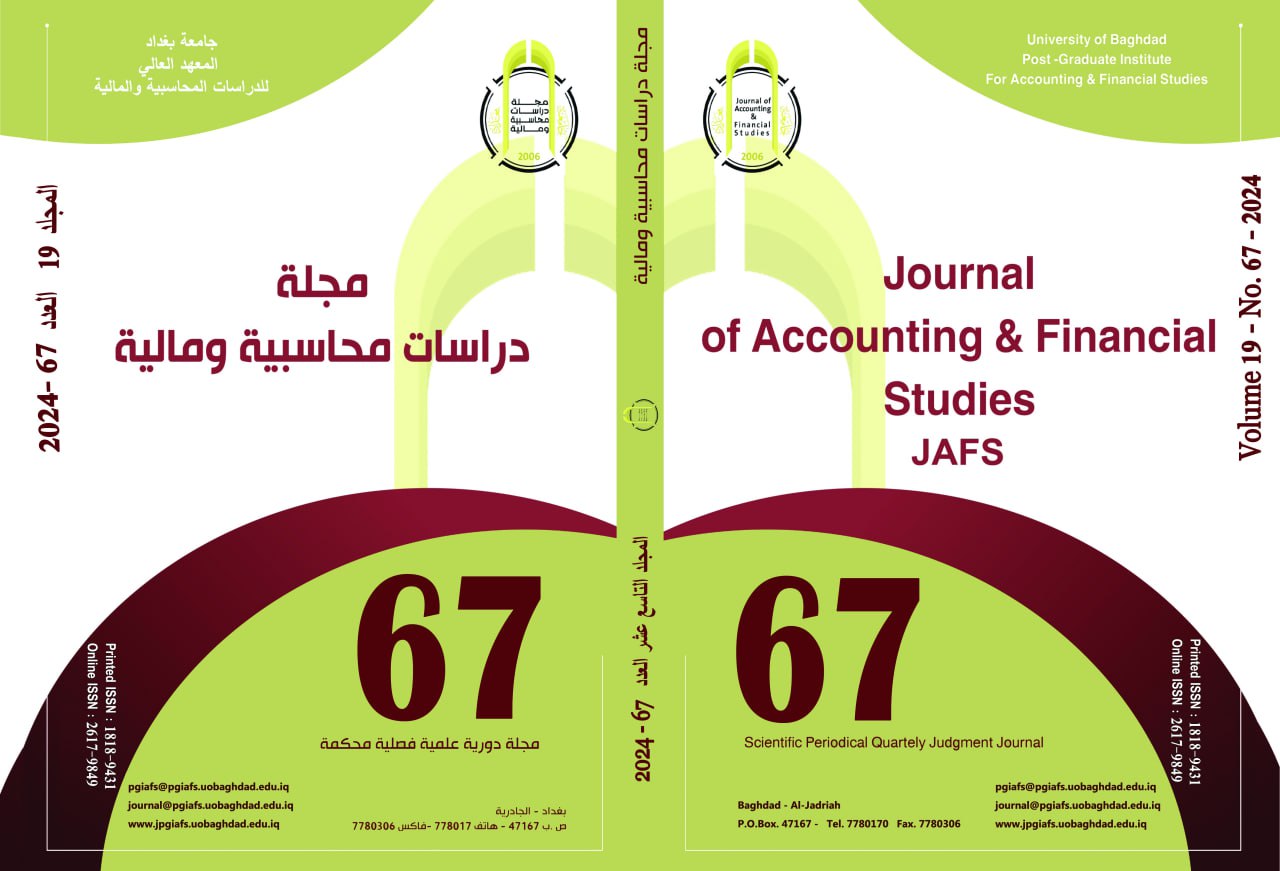The effect of materiality (International Auditing Standard 320) in determining detection risks and their reflection on the quality of the audit process/ applied research
DOI:
https://doi.org/10.34093/bv5t5j52Keywords:
relative importance, detection risks, quality of the audit processAbstract
Abstract:
The research aims to explain how to determine audit risks, specifically detection risks, after determining the relative importance of financial statement items in accordance with International Auditing Standard 320, and this has a reflection on the quality of the audit process. The research also aims to propose an audit program in light of International Auditing Standard 320. It represents the research community General contracting companies because of its importance and impact on the economy of Iraq. As for the research sample, it represented the Hammurabi General Construction Contracting Company and analyzed the financial statements for the year 2021 by calculating relative importance and identifying risks based on International Auditing Standard 320. One of the most important conclusions reached by the research was that there is an effect of applying the standard. International Auditing (320) Relative Importance in Determining Discovery Risks, which in turn is reflected in the quality of the audit. One of the most important recommendations was the need for the external auditor to rely in determining discovery risks on the application of International Auditing Standard (320) Relative Importance.
Downloads
Published
Issue
Section
License
The copyright is transferred to the journal when the researcher is notified of the acceptance of his research submitted for publication in the journal.





